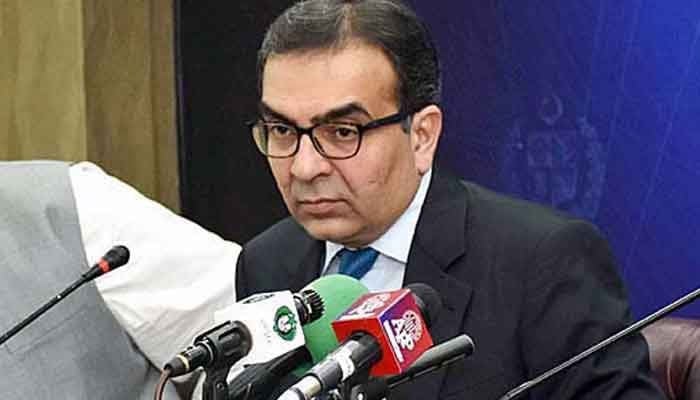Pakistan plans electricity export to Central Asian states
ISLAMABAD: Pakistan’s delegation headed by Energy Minister Muhammad Ali here on Thursday left for Bishkek, Kyrgyzstan, to attend an inter-governmental commission meeting mainly to figure out the option to utilize the much-touted and delayed $1.17 billion CASA-1000 project structure for the export of electricity.
The proposal to allow the flow of power in months from October to April would help overcome its monster of capacity payments, which has now risen to Rs2.1 trillion. The agreement would be helpful once CASA-1000 gets implemented.
Pakistan has an installed capacity to generate electricity of 45,000 MWs, which plummets to 9,000-12,000 MWs in the winter season. Under the CASA project, Pakistan is supposed to purchase electricity from Tajikistan during the five months (May-Sept) of the summer season at the cost of 9.50 cents per unit. Now Pakistan proposes to export its electricity to Afghanistan, Tajikistan, and Kyrgyzstan in the winter months through the same CASA-1000 transmission line.
Energy Minister Muhammad Ali will represent Pakistan and other top officials from EAD, Commerce, SECP, and Central Power Purchase Agency (CPPA) will also accompany him to the meeting. The representatives of Kyrgyzstan, Tajikistan and World Bank would also be there to discuss the issue. In addition, the IGC will also hold discussions on trade, industries, Information Technology, communications, climate change, science and technology and investment.
CASA-1000 is already facing a delay of two years after the World Bank and USAID funding was held back after the regime change in Afghanistan. Pakistan had earlier initiated talks for the export of electricity to Tajikistan and Kyrgyzstan by using the open access clause of the Master Agreement under the CASA-1000 project. The project was approved in March 2014 and became effective in January 2018.
According to a relevant senior official of the Power Division, experts of the National Transmission Dispatch Company (NTDC) on behalf of Pakistan held talks in 2019 in Dubai with experts from Tajikistan on the export of electricity.
Pakistan formally asked Tajikistan to invoke the open access clause in the agreement paving way for two-way trade of electricity. Under the existing deal, Pakistan is bound to import 1,000 MW electricity per day at 9.50 cents per unit in the summer season from May to October once this project comes on stream. And more importantly, Pakistan will also not bear electricity transit loss in Afghanistan in case of any subversive activity.
-
 Royal Family Shares Princess Anne's Photos From Winter Olympics 2026
Royal Family Shares Princess Anne's Photos From Winter Olympics 2026 -
 Tori Spelling Feels 'completely Exhausted' Due To THIS Reason After Divorce
Tori Spelling Feels 'completely Exhausted' Due To THIS Reason After Divorce -
 SpaceX Successfully Launches Crew-12 Long-duration Mission To ISS
SpaceX Successfully Launches Crew-12 Long-duration Mission To ISS -
 PlayStation State Of Play February Showcase: Full List Of Announcements
PlayStation State Of Play February Showcase: Full List Of Announcements -
 Ed Sheeran, Coldplay Caught Up In Jeffrey Epstein Scandal
Ed Sheeran, Coldplay Caught Up In Jeffrey Epstein Scandal -
 Paul Anthony Kelly Reveals How He Nailed Voice Of JFK Jr.
Paul Anthony Kelly Reveals How He Nailed Voice Of JFK Jr. -
 US, China Held Anti-narcotics, Intelligence Meeting: State Media Reports
US, China Held Anti-narcotics, Intelligence Meeting: State Media Reports -
 Victoria, David Beckham React To Marc Anthony Defending Them Amid Brooklyn Drama
Victoria, David Beckham React To Marc Anthony Defending Them Amid Brooklyn Drama -
 Victoria Wood's Battle With Insecurities Exposed After Her Death
Victoria Wood's Battle With Insecurities Exposed After Her Death -
 Prince Harry Lands Meghan Markle In Fresh Trouble Amid 'emotional' Distance In Marriage
Prince Harry Lands Meghan Markle In Fresh Trouble Amid 'emotional' Distance In Marriage -
 Goldman Sachs’ Top Lawyer Resigns Over Epstein Connections
Goldman Sachs’ Top Lawyer Resigns Over Epstein Connections -
 How Kim Kardashian Made Her Psoriasis ‘almost’ Disappear
How Kim Kardashian Made Her Psoriasis ‘almost’ Disappear -
 Gemini AI: How Hackers Attempt To Extract And Replicate Model Capabilities With Prompts?
Gemini AI: How Hackers Attempt To Extract And Replicate Model Capabilities With Prompts? -
 Palace Reacts To Shocking Reports Of King Charles Funding Andrew’s £12m Settlement
Palace Reacts To Shocking Reports Of King Charles Funding Andrew’s £12m Settlement -
 Megan Fox 'horrified' After Ex-Machine Gun Kelly's 'risky Behavior' Comes To Light
Megan Fox 'horrified' After Ex-Machine Gun Kelly's 'risky Behavior' Comes To Light -
 Prince William's True Feelings For Sarah Ferguson Exposed Amid Epstein Scandal
Prince William's True Feelings For Sarah Ferguson Exposed Amid Epstein Scandal




